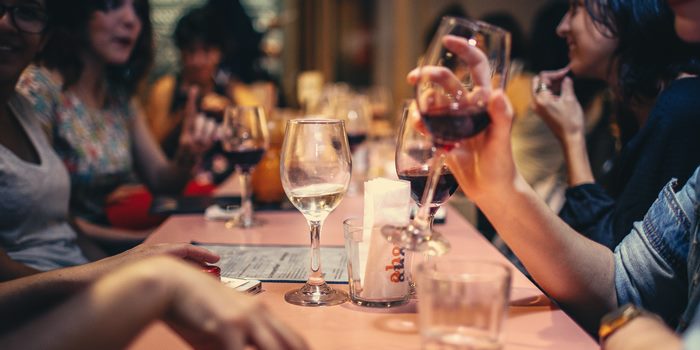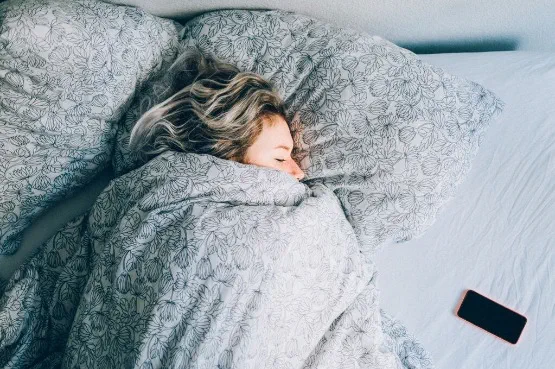How to avoid giving in when you’re on a drinking detox
Throughout the year, there are lots of alcohol-free challenges that many of us take part in. From Dry January to Sober October, there’s plenty to choose from. However, there’s often temptation! Whether it’s the appeal of after work drinks or a date night, it’s likely that throughout the month you’ll be around alcohol.
Here, I share a few tips for avoiding slip-ups when you’re on an alcohol detox.

What does it mean to go on a detox?
A drinking detox means to stop drinking alcohol. Anyone can choose to start drinking less. There are lots of health benefits to detoxes, such as weight loss, improved sleep and happier skin. A detox could also be a way to help you cut down on alcohol throughout the year.
Tips for alcohol detoxes
1. Keep yourself motivated
Our brains need more time than we would like to turn a new behaviour into something we do automatically. So whether you’re cutting back on alcohol or removing it completely, your brain will need some time to process this change. Your brain has to create a new pathway – and avoid existing, well-used pathways. This might be for example when you start swapping your usual drink for an alcohol-free alternative with your dinner.
Luckily, the more times you do something, the stronger this pathway becomes. Repetition is crucial. When you’ve swapped for an alcohol-free alternative enough times, your brain will begin automatically taking this pathway.
2. Interrupt your brain
When you’re trying to resist giving into temptation, you need to interrupt your automatic brain – the existing pathways and habits you have. Enjoying a drink at a certain time of the week or in a particular situation might be habits that your brain is used to.
So if you’re used to having a glass of wine with your dinner, or enjoying a beer after work, you might want to shake these habits up. Small changes for a couple of weeks can jar your brain out of autopilot and help build your willpower. So, in time you can build the willpower to say no to alcohol.
3. Surf the urge
If you’re finding it tough, another good technique to try is urge-surfing. This is the thinking or belief that urges will pass, whether you give into them or not. Rather than trying to ignore the temptation for a drink, instead pay attention to the kind of sensations it causes in your body and really feel them. If you’re able to confront the urge head on, you’re less likely to slip up and give into temptation.
What happens if you drink on a detox?
Even with the best of intentions, it’s easy to give into your urges. If this happens, don’t worry. Making a major lifestyle change is difficult, so if you do have a drink, there are a couple of ways to pick yourself up.
Practice self-compassion
Don’t punish yourself for giving in. Instead, view it with self-compassion. Treat yourself with kindness and understanding when you’ve had a setback, rather than self-criticism or frustration. This way, you’re more likely to achieve your overall goal. And, try to celebrate the small wins along the way.
Allow other indulgences
It puts a lot of strain on the brain to make too many changes all at once, and you’re less likely to achieve them all. So, if you’re giving up or cutting down on alcohol, don’t worry too much about saying no to dessert as well – you’re only human.
Learn from your experience
Being constructive and learning from your slip-up can help too. Focus on the positives and how much you’ve achieved in your challenge already.
Do you know how healthy you truly are? Bupa health assessments give you a clear overview of your health and a view of any future health risks. You'll receive a personal lifestyle action plan with health goals to reach for a happier, healthier you.
-
Sources Sources
- Drink Free Days campaign evidence. Drinkaware. Published September 2018.
- Kwasnicka D, Dombrowski SU, White M, et al. Theoretical explanations for maintenance of behaviour change: a systematic review of behaviour theories. Health Psychol Rev. 2016 Sep;10(3):277-96. doi: 10.1080/17437199.2016.1151372.
- Wood, W., & Neal, D. T. (2016). Healthy through habit: Interventions for initiating & maintaining health behavior change. Behavioral Science & Policy, 2(1), pp. 71–83.
- Finkel, E. J. (2008). Intimate partner violence perpetration: Insights from the science of self-regulation. In J. P. Forgas & J. Fitness (Eds.), Social relationships: Cognitive, affective, and motivational processes (pp. 271–288).
- Ostafin, B. D & Marlatt, G. A. (2008). Surfing the urge: Experiential acceptance moderates the relation between automatic alcohol motivation and hazardous drinking. Journal of Social and Clinical Psychology, 27(4), 404–418. doi:10.1521/jscp.2008.27.4.404.
- Leary MR, Tate EB, Adams CE, Allen AB, Hancock J. Self-compassion and reactions to unpleasant self-relevant events: the implications of treating oneself kindly. J Pers Soc Psychol. 2007 May;92(5):887-904. doi: 10.1037/0022-3514.92.5.887.
About our health information
At Bupa we produce a wealth of free health information for you and your family. This is because we believe that trustworthy information is essential in helping you make better decisions about your health and wellbeing.
Our information has been awarded the PIF TICK for trustworthy health information. It also follows the principles of the The Information Standard.

More mental health and wellbeing articles
Did you find our advice helpful?
We’d love to hear what you think. Our short survey takes just a few minutes to complete and helps us to keep improving our healthy lifestyle articles.
Legal disclaimer
This information was published by Bupa's Health Content Team and is based on reputable sources of medical evidence. It has been reviewed by appropriate medical or clinical professionals and deemed accurate on the date of review. Photos are only for illustrative purposes and do not reflect every presentation of a condition.
Any information about a treatment or procedure is generic, and does not necessarily describe that treatment or procedure as delivered by Bupa or its associated providers.
The information contained on this page and in any third party websites referred to on this page is not intended nor implied to be a substitute for professional medical advice nor is it intended to be for medical diagnosis or treatment. Third party websites are not owned or controlled by Bupa and any individual may be able to access and post messages on them. Bupa is not responsible for the content or availability of these third party websites. We do not accept advertising on this page.







